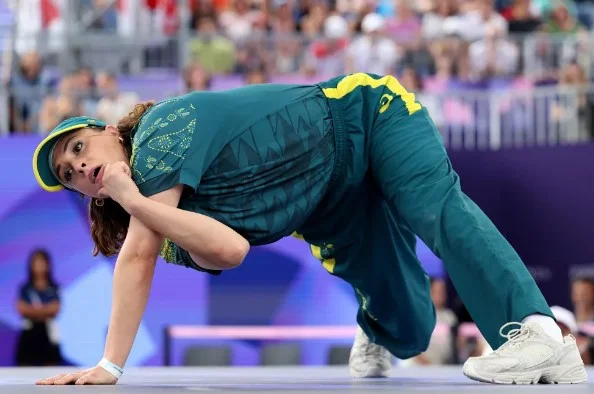
Breakdancing, a high-energy dance form with roots in urban culture, made its grand entrance onto the Olympic stage at the 2024 Paris Games. While the world celebrated this new era of sports, one Australian dancer, Rachael Gunn, better known as Raygun, ignited a firestorm of debate and discussion.
Read More interesting articles on trendystring.com
Gunn, a seasoned breakdancer with a PhD in cultural studies and a college professor position at Macquarie University, brought a unique artistic flair to the competition. Despite being a top-ranked B-girl in Australia, her performance in the round-robin stage of the women’s breaking competition didn’t resonate with the judges. Her unconventional moves, a stark contrast to the more traditional styles of her competitors, led to a complete shutout.
Social media erupted with reactions, ranging from shock and amusement to criticism and support. Some users found Gunn’s performance refreshingly original, while others questioned her strategy and the judging criteria. The incident sparked a broader conversation about the nature of artistic expression within the confines of competitive sport.
Gunn herself remained unfazed by the controversy, emphasizing her commitment to pushing the boundaries of breakdancing. “Creativity is really important to me,” she stated. “I go out there, and I show my artistry.” Her performance undoubtedly left a lasting impression, even if it didn’t align with the judges’ preferences.
Ultimately, Japan’s Ami Yuasa claimed the gold medal, but Gunn’s story became a viral sensation, highlighting the dramatic and unpredictable nature of Olympic competition. As breakdancing continues to evolve as a sport, it’s clear that athletes like Raygun will play a vital role in shaping its future.